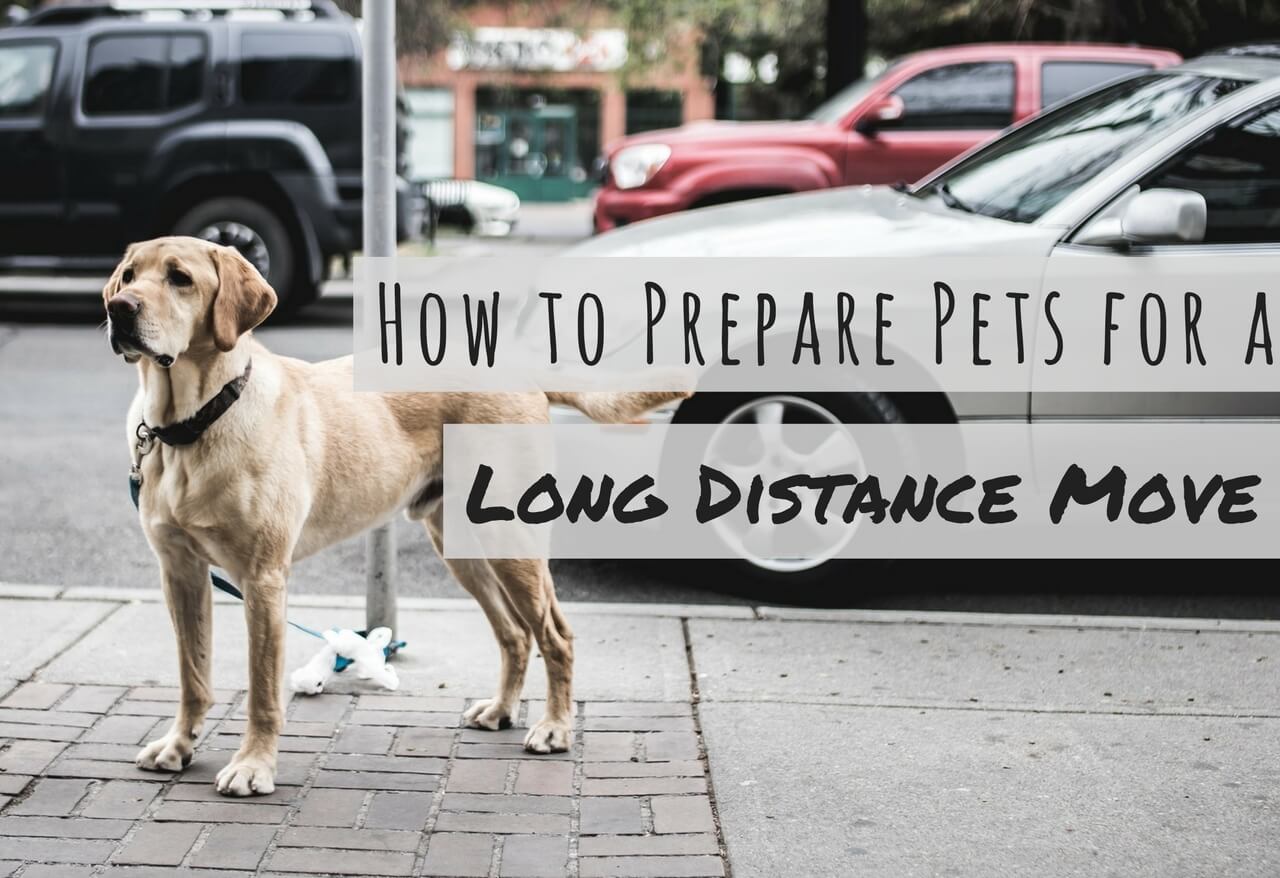Pulling off an cross country move involves a lot of planning and preparation, even it if just involves humans, but especially if there are additional 4-legged family members to consider. If you have pets, there are some additional items you should add to your moving to-do list to make sure the transition is just as smooth for them as it is for the rest of the family. Here are some tips on how to prepare your pets for the big move:
Take Care of Things at the Vet
Just as you’ll need to gather all your personal medical records, make sure you also have a copy of your pet’s medical records from your current vet. You may also want to schedule one last check-up appointment to ensure that your pup is current on shots and has an adequate supply of any needed medications. You should also make sure your pet is microchipped for easy identification. While you’re there, you can ask your vet’s office to provide a referral for a veterinarian in your new home state. As soon as you’ve moved, make sure to get Rover in for a visit with the new vet, so you’ll have somewhere to turn should an emergency arise.
Try to Maintain a Routine
Animals have a keen awareness of change, so when you start packing up their home it may cause some distress. To keep anxiety at bay, try to stick to your normal routine as much as possible. For example, if they are used to taking a morning walk after breakfast or playing fetch before dinner, continue these routines. Some consistency amid the chaos of moving could be good for both of you.

Keeping some familiar toys out will provide comfort to your pup amidst the moving chaos.
Don’t Pack Everything
As you pack up your home, make sure you keep your pet’s personal space intact as long as possible. Providing them a quiet place to retreat will help them cope with the anxiety caused by their normal surroundings getting moved around and boxed up. While it may be tempting to pack up all their toys, blankets, and other accessories along with everything else, keep at least a few of these items out for some additional comfort.
Don’t Forget the Essentials Box
We always recommend packing an essentials box or two filled with everything you need to survive the first few nights in your new house, such as toiletries, medications, change of clothes, sheets, etc. An essentials box is especially important for a cross country move because there’s often a substantial delay between the time the moving truck departs your old house and arrives at the new one. Don’t forget to pack essentials for Fido as you pack for the rest of the family. Your pup’s essentials box should include food, medications, his leash, toys, treats, and bedding.
Have a Plan for Moving Day
When moving day finally arrives, makes sure you have arranged alternative accommodations for your pet. Having your dog underfoot while the movers are loading the truck could pose a danger for both parties. Instead, check your pup into a local doggie daycare or ask a friend to watch him for a few hours. If neither of these is an option, you can always crate him in a room that’s a bit removed from the chaos.
Be Prepared for the Road Trip
Whether you plan on flying or driving to your new home, make sure you have a carrier large enough to comfortably transport your furry friend. If traveling by air, try to book a direct flight to keep travel time to a minimum. If going by car, make sure your pet has the chance to use the restroom and stretch his legs as frequently as everyone else in the vehicle.

If you’re driving to your new home, make sure to take frequent stops for Rover to stretch his legs.
Get Settled
Once you arrive at your new home, help your pet adjust by allowing him to explore his new surroundings. Unpack the essentials box and put out his bedding, some of his favorite toys, and maybe even a few treats. The familiarity and scent of these items will provide comfort as he acclimates to the unfamiliar environment.












